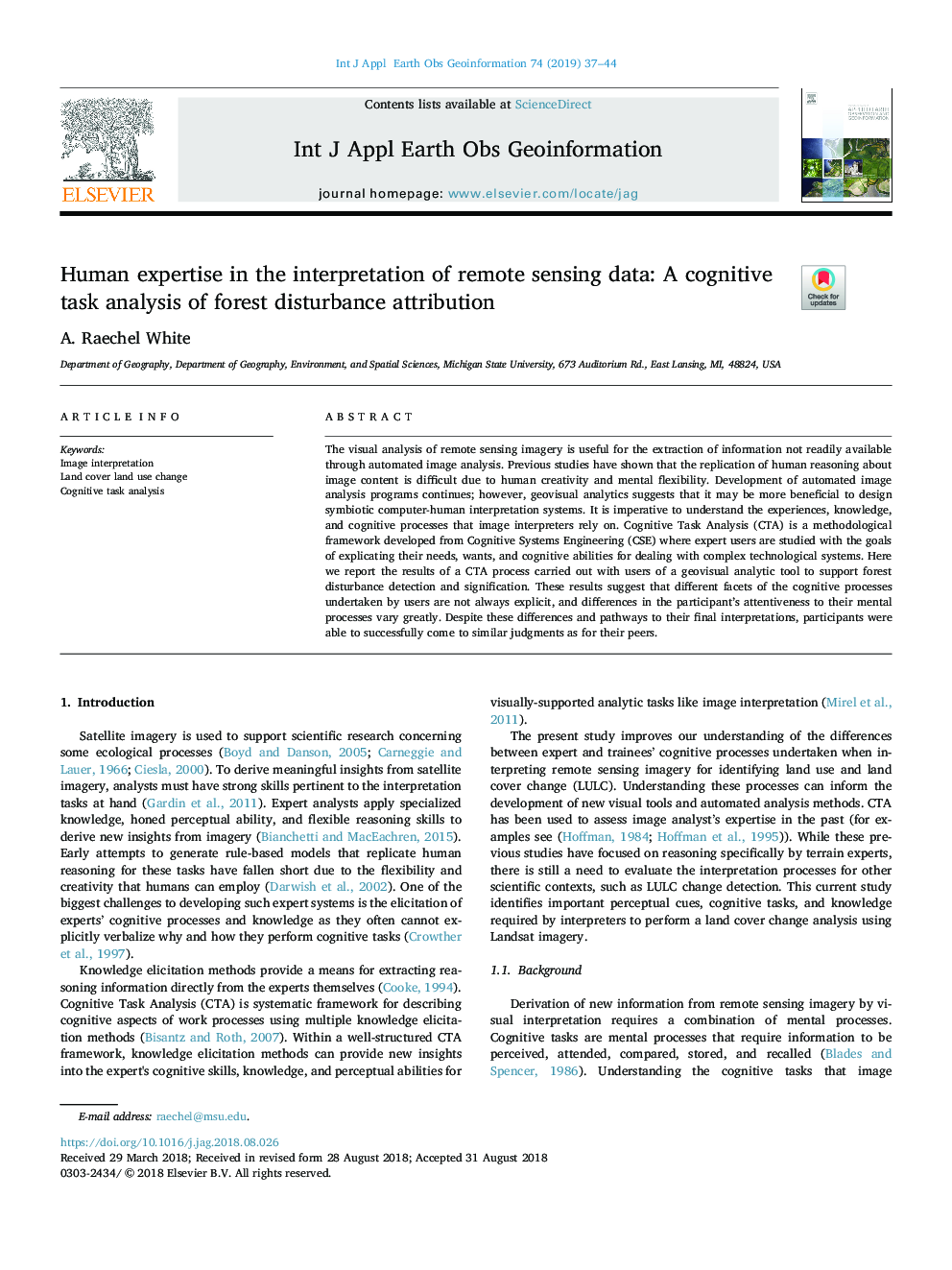| Article ID | Journal | Published Year | Pages | File Type |
|---|---|---|---|---|
| 10149654 | International Journal of Applied Earth Observation and Geoinformation | 2019 | 8 Pages |
Abstract
The visual analysis of remote sensing imagery is useful for the extraction of information not readily available through automated image analysis. Previous studies have shown that the replication of human reasoning about image content is difficult due to human creativity and mental flexibility. Development of automated image analysis programs continues; however, geovisual analytics suggests that it may be more beneficial to design symbiotic computer-human interpretation systems. It is imperative to understand the experiences, knowledge, and cognitive processes that image interpreters rely on. Cognitive Task Analysis (CTA) is a methodological framework developed from Cognitive Systems Engineering (CSE) where expert users are studied with the goals of explicating their needs, wants, and cognitive abilities for dealing with complex technological systems. Here we report the results of a CTA process carried out with users of a geovisual analytic tool to support forest disturbance detection and signification. These results suggest that different facets of the cognitive processes undertaken by users are not always explicit, and differences in the participant's attentiveness to their mental processes vary greatly. Despite these differences and pathways to their final interpretations, participants were able to successfully come to similar judgments as for their peers.
Related Topics
Physical Sciences and Engineering
Earth and Planetary Sciences
Computers in Earth Sciences
Authors
A. Raechel White,
